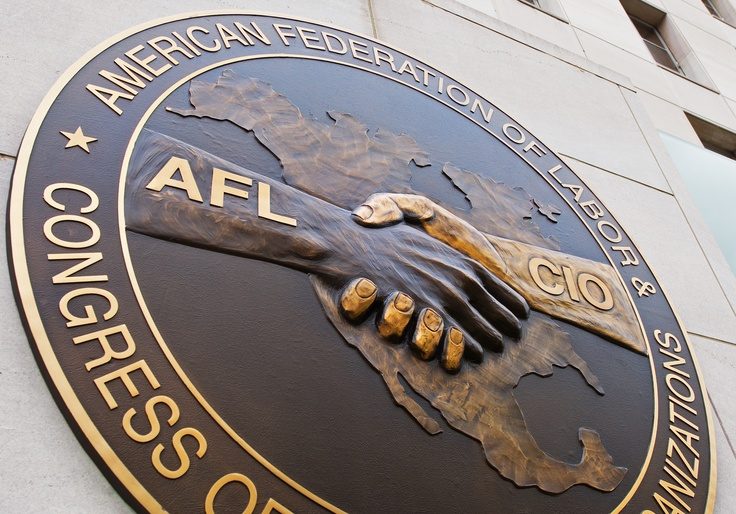Lawmakers urged union leaders to stop collecting dues from workers left unemployed by the coronavirus after the Washington Free Beacon revealed that a California union threatened to cut off health insurance to laid-off workers if they stopped membership payments.
In letters sent Tuesday, Reps. Virginia Foxx (N.C.) and Tim Walberg (Mich.), top Republicans on the Education and Labor Committee, accused the nation's largest labor groups of exploiting members who have lost their jobs due to the pandemic. The lawmakers said dues and fees—which can range anywhere from $20 a month to 4 percent of a worker's salary—could be placing an "unnecessary hardship" on vulnerable members.
"We are concerned that the continuing collection of union dues from unemployed workers is imposing an additional and unnecessary hardship on these workers and their families—making it even more difficult for struggling Americans to make ends meet," the letters say, pointing to a Free Beacon report from March.
The Free Beacon reported that UNITE HERE Local 11 told many unemployed members in Southern California and Arizona that it was "critical" for them to continue paying dues in the early days of the outbreak even as the hospitality industry was crushed by statewide lockdowns and travel restrictions. Union organizers threatened to cut off health insurance for those unable to pay in at least one case. Foxx admonished the practice, highlighting the strain coronavirus has placed on millions of American workers.
"Demanding union dues from the unemployed is unconscionable. Tens of millions of Americans have lost their jobs because of COVID-19. Families, workers, and businesses are struggling to make ends meet," she told the Free Beacon. "Every dollar counts. When so many are forced to tighten their belts, is it too much to expect Big Labor to do the same?"
Foxx and Walberg sent the letters to UNITE HERE president Donald Taylor, AFL-CIO president Richard Trumka, Teamsters president James Hoffa, and Service Employees International Union (SEIU) president Mary Kay Henry. They note that while some unions have given workers a break amid the pandemic, "this is not the case nationwide."
"During this crisis, unions have a duty to help their struggling members, not treat them like ATM machines," Center for Union Facts spokeswoman Charlyce Bozzello said. "Local 11's own co-president reported that nearly 100 percent of his union's members had been laid off. But somehow, there's still little said on what financial relief is being offered to these workers in the form of suspended or reduced dues payments. It seems Local 11's way of managing its response to this crisis is the rule, not the exception among labor unions."
The letters also noted that while unions may be concerned that a lull in revenue due to coronavirus could harm their ability to "organize and represent workers effectively," top labor organizations "currently spend millions each year on non-bargaining and non-representational activity." The four unions addressed in the letter have already spent a combined $10.6 million on political contributions during the 2020 cycle, according to the Center for Responsive Politics. UNITE HERE Local 11 endorsed both Sens. Bernie Sanders (I., Vt.) and Elizabeth Warren (D., Mass.) for president in January.
A UNITE HERE spokeswoman said that the union "has never required unemployed members to pay dues" and that some members "do continue to voluntarily self-pay their union dues." UNITE HERE did not respond to further questions regarding allegations that its Local 11 chapter linked health insurance coverage to maintaining dues payments. Local 11 did not respond to a request for comment.
"It sounds to me like all they want is the money, and that's it. They don't care about their employees," one member told the Free Beacon in March.
AFL-CIO communications director Tim Schlittner called the letter "a solution searching for a problem," saying that the "vast majority of union members do not pay dues when they are out of work and all other times they are proud to make an investment in themselves and their coworkers."
Labor watchdogs told the Free Beacon that continued dues collections could also detract from some of the federal relief intended to help laid-off workers. Patrick Semmens, spokesman for the National Right to Work Foundation, called the behavior "outrageous."
"It is simply outrageous that union bosses continue to demand union dues from workers who are out of work and that unions are likely siphoning dues out of Coronavirus aid money intended for those whose employment has been affected by Covid," he said. "Union officials are demonstrating that their greed for union dues comes ahead of what is actually best for rank-and-file workers."
The SEIU and Teamsters—the other recipients of the congressional letter—did not respond to requests for comment.
